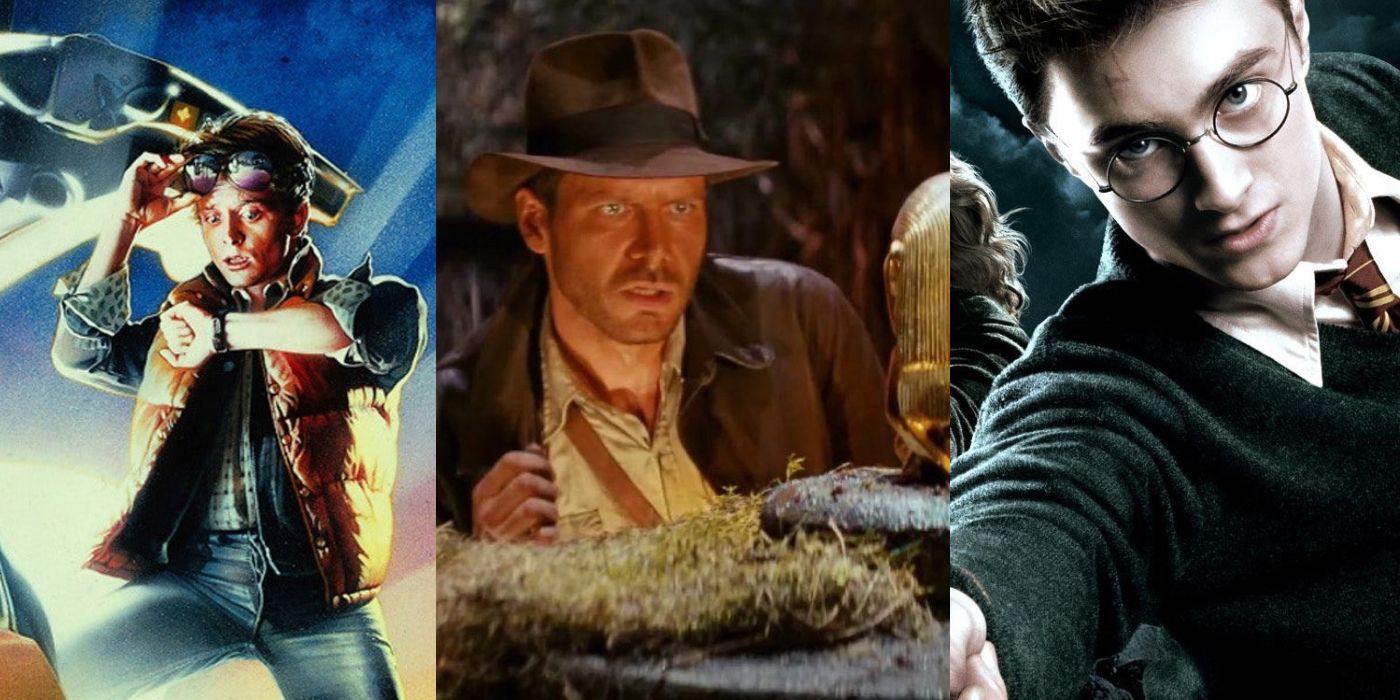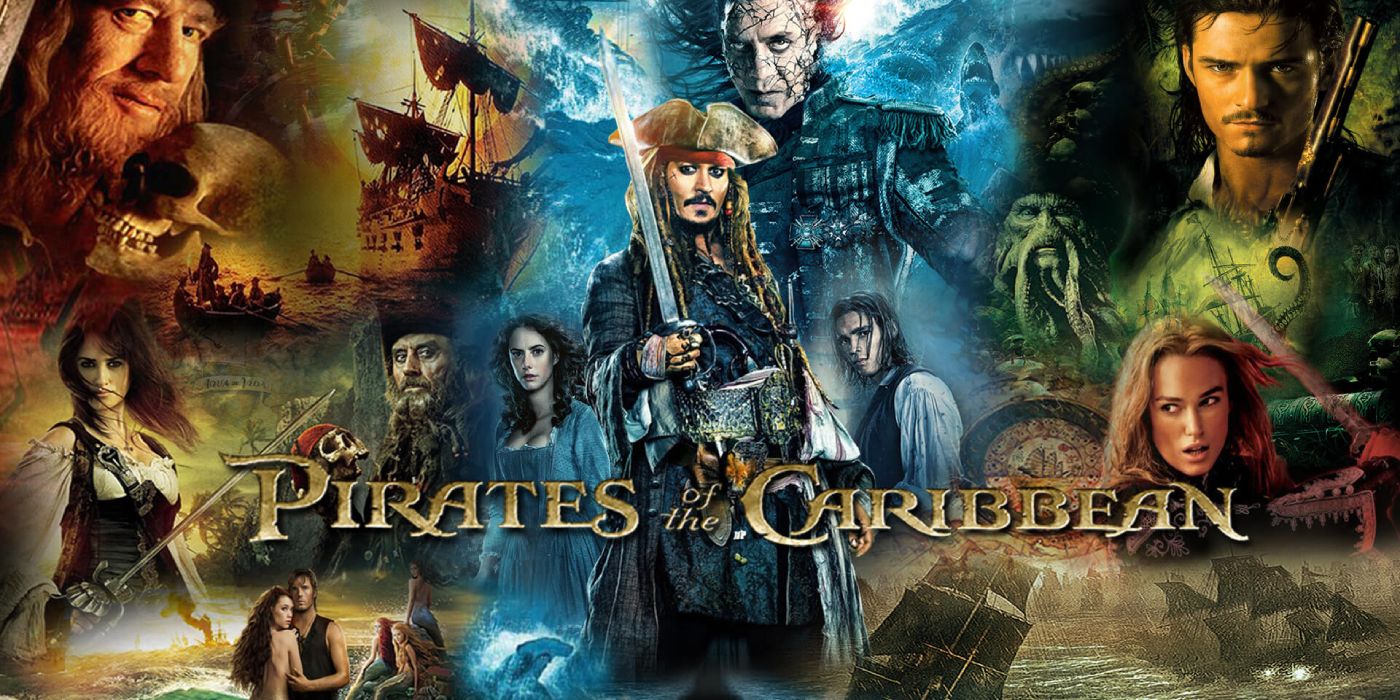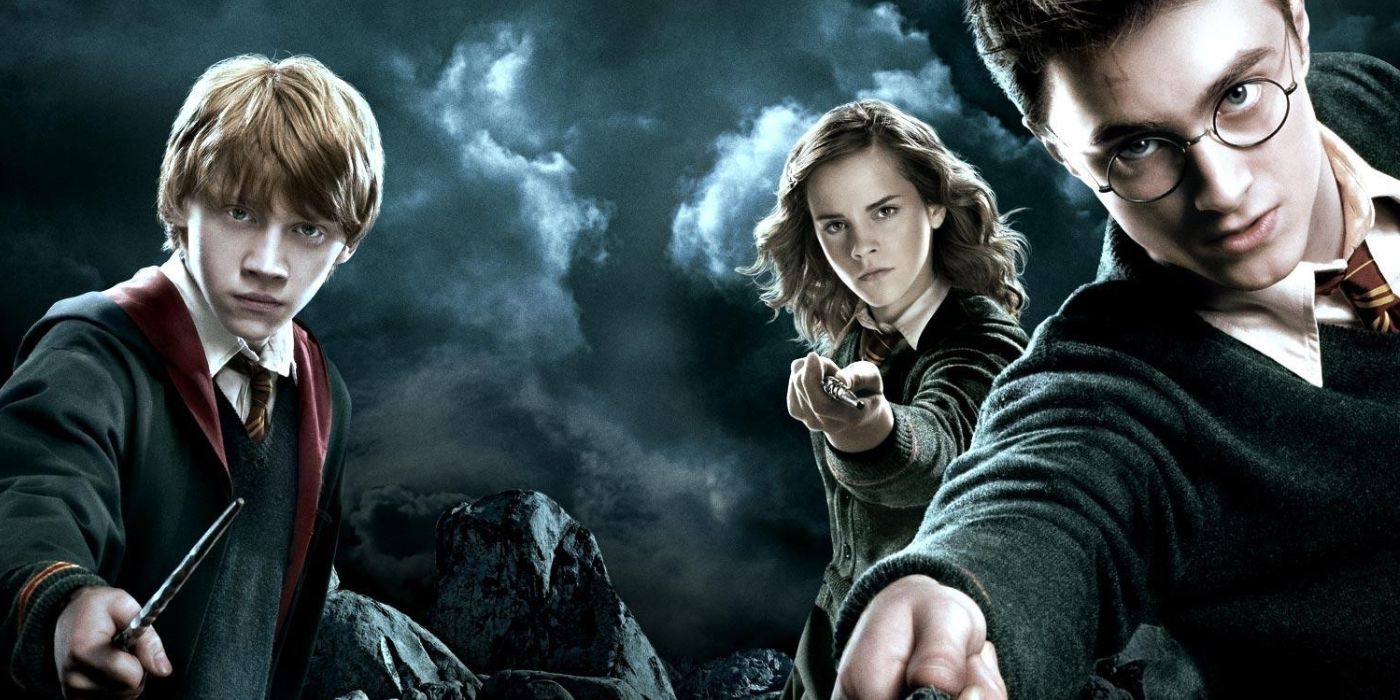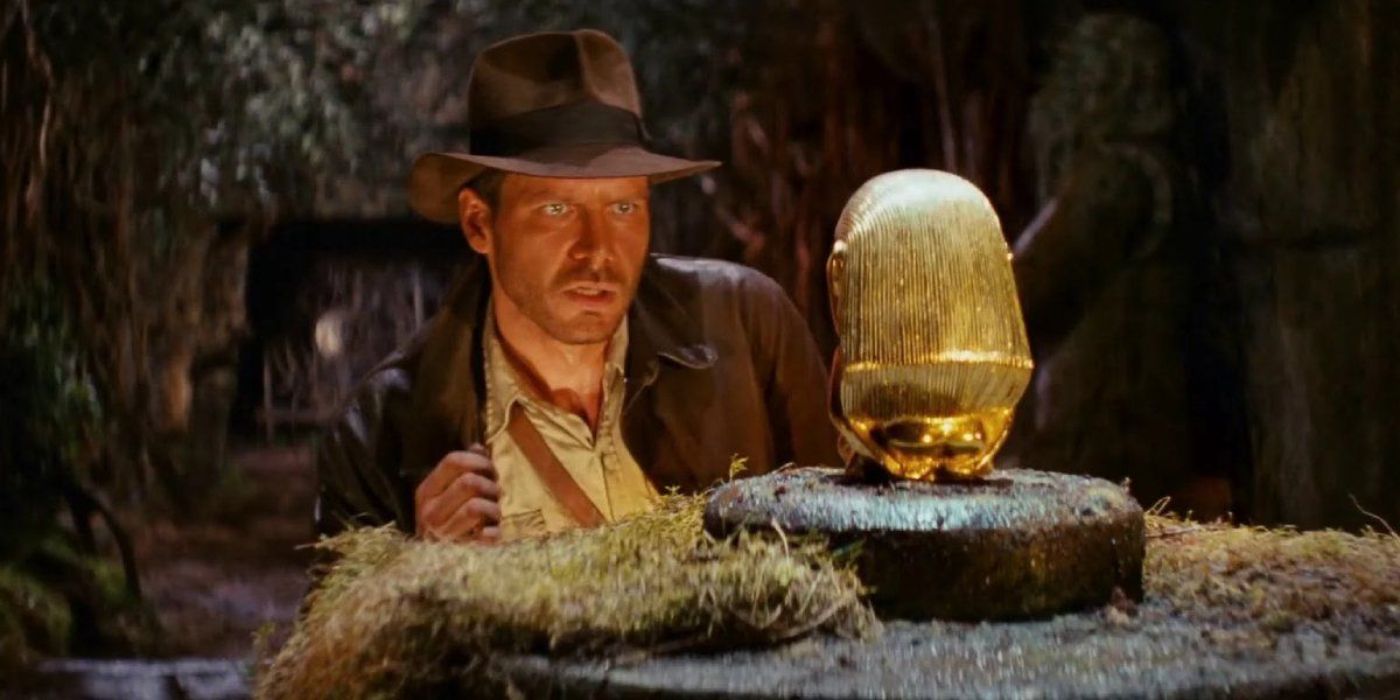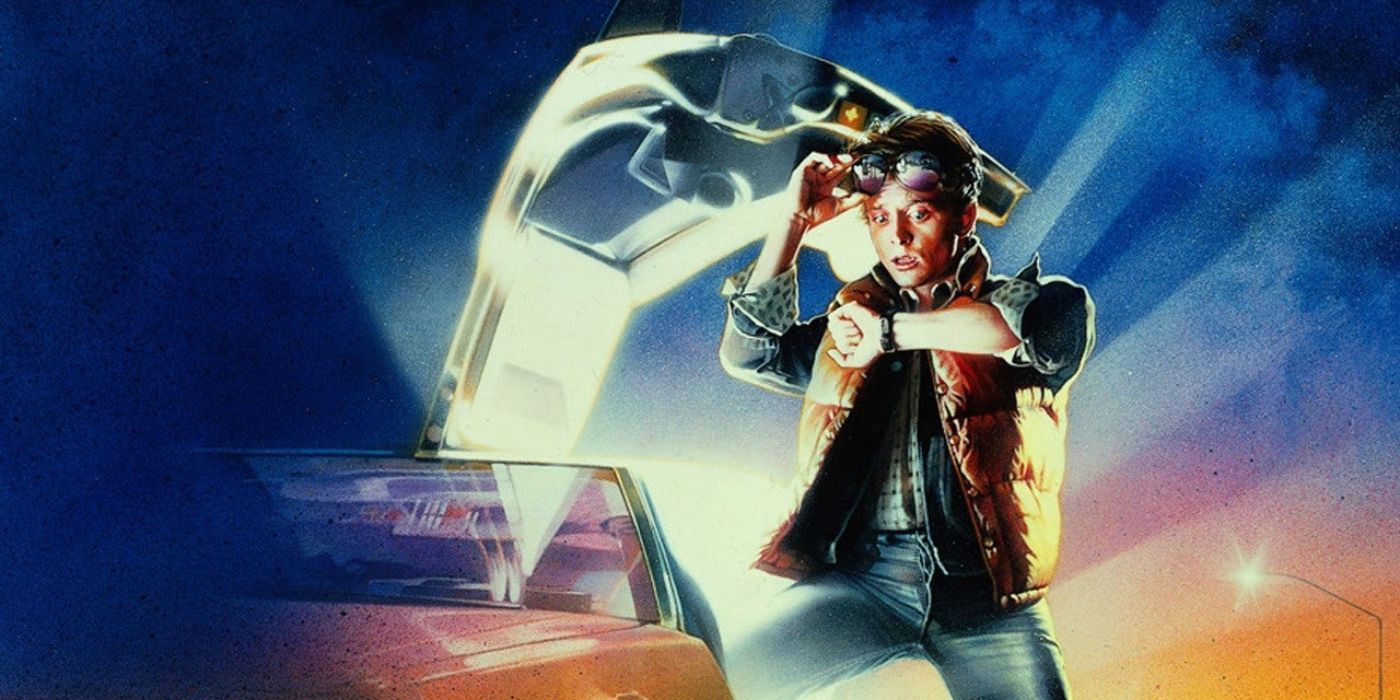The Lord of the Rings is one of the most popular franchises by far, rivaling the likes of Harry Potter, Star Wars, and even the MCU in its popularity and influence. However, there are some aspects of the franchise which let it down, and others that do better, whether that’s the visual effects, plot, performances, or character development. The Lord of the Rings has one of the most extensive and well-loved worlds with Tolkien’s creations, which influenced almost all fantasy work today (Dungeons & Dragons and World of Warcraft to name a couple).
However, it’s widely accepted by fans and non-fans alike that The Hobbit trilogy left much to be desired and generally lets down the franchise as a whole. Star Wars fans often have the same opinion about either the prequels or the most recent installments. Regardless, there are some aspects other franchises do better than The Lord of the Rings.
5 Pirates of the Caribbean Has Better Witty And Tasteful Humor
The Lord of the Rings franchise isn’t void of humor, and hobbits are often the ones to crack jokes or be the butt of them. Gimli and Legolas’ relationship is also comedic, but otherwise, there is little humor in The Lord of the Rings. This is understandable considering the danger the characters face, but this is also applicable to the Pirates of the Caribbean franchise. The characters frequently face danger and challenges, and there are plenty or heartbreaking moments, but there is much more humor throughout the movies.
Not only is Jack Sparrow a comedic, larger than life character, but he has much more humorous interactions with his companions than, for example, Samwise does in The Lord of the Rings. Overall, Pirates of the Caribbean is more of a family, comedy-adventure franchise with a great combination of physical humor and witty jokes.
4 Harry Potter Tackles The Call To Heroism From A Naive Perspective
In many regards, the hobbits of both The Lord of the Rings and The Hobbit are much like Harry and his companions in the Harry Potter franchise. Frodo, in particular, has many things in common with Harry, such as being the ‘chosen one’ character archetype and the only one able to save the world. While The Lord of the Rings dwells mostly on Frodo’s burden and how he wishes things could get back to normal, the Harry Potter franchise does a much better job at demonstrating the difficulties of accepting the hero’s fate.
Harry is only a boy when he’s told he’s the only one capable of stopping Voldemort, whereas Frodo is 51 years old when The Lord of the Rings begins. In this regard, Harry is more naive, and yet, the movies do a better job of showing how he grows to accept his role as hero. He accepts his naivety and works to better himself for the sake of his friends and to stop the Dark Lord. On the other hand, Frodo remains much the same and instead loses his child-like energy, becoming a hollow shell of the person he once was. While Frodo is essentially an embodiment of a soldier returning from war, unable to return to society, Harry Potter is a demonstration of what it’s like for a boy to grow up with the weight of destiny on his shoulders.
3 Indiana Jones: Adventure Done Well With A Swashbuckling Twist
The Indiana Jones franchise is a fun family adventure with an iconic score and great performances from Harrison Ford. As opposed to The Lord of the Rings, the Indiana Jones franchise is a more accessible and easy to follow set of movies, given that audiences don’t need to watch them chronologically to understand them. Like The Lord of the Rings, the franchise is full of adventure and demonstrates that people cannot understand the world and its history unless they travel beyond their usual confines. Moreover, Indiana Jones offers audiences a greater sense of escapism than The Lord of the Rings, given that it takes place in a world audiences know and can relate to. Whether he’s fighting Nazis, exploring long-lost tombs, or trekking through a jungle, Indiana Jones is a role model and someone audiences might want to be. On the contrary, many viewers wouldn’t like to find themselves in Frodo’s shoes.
2 Back To The Future: Uncomplicated Sci-Fi And Time Travel For All
In a similar vein to Indiana Jones, the Back to the Future franchise is accessible, family friendly, and fun throughout. Doc and Marty’s interactions take comedic levity to a new level, and given the age of the movies, they’re nostalgic and light-hearted for viewers of all ages. Moreover, as Back to the Future isn’t based on novels, there’s no additional lore other than what’s divulged in the movies. The Lord of the Rings suffers occasionally from lack of exposition, and unless audiences are watching the extended versions, relies on them knowing the backstory of characters and what certain terms mean.
Back to the Future also tackles science and science fiction from an approachable point of view, exploring scientific concepts such as time travel through a feel-good and over the top point of view. Unlike any of the other franchises on this list, Back to the Future also explores various time periods and has undoubtedly inspired audiences of all ages to pursue interest in time travel and science.
The Planet of the Apes franchise began back in 1968, and since then has become a well known and much loved film series. It’s set in a future dystopia where apes have taken over the planet after evolving to a point they can contest humanity. Unlike any of the other franchises on this list, the Planet of the Apes movie series is rife with social commentary – from environmentalism to how humanity currently treats animals in both day to day and scientific experiments.
While The Lord of the Rings does occasionally discuss aspects of racism and mistrust amongst the various races of Middle Earth, Planet of the Apes does so in a much more obvious and scathing manner. Moreover, as it’s set on Earth (or at least what was once an Earth-like planet), the themes of the franchise are far more tangible to audiences, who’ll undoubtedly leave the film with a new perspective on how humanity treats the planet.
Read Next
About The Author
